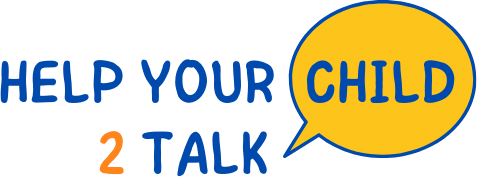Navigating the workplace can be challenging, especially for individuals with developmental disabilities. As parents, you play a pivotal role in shaping your child’s communication skills, which are important for the workplace and independence. In this article, we will discuss building workplace communication skills for individuals with developmental disabilities. We will offer strategies, examples, and resources to help you support your child’s journey in developing effective workplace communication skills.

Understanding Communication in the Workplace
Effective communication in the workplace involves not only speaking and listening but also understanding non-verbal cues and the ability to adapt to different communication styles. For individuals with developmental disabilities, mastering these aspects can significantly enhance their employability and workplace interactions.
Strategies for Building Workplace Communication Skills for Individuals with Developmental Disabilities
1. Encourage Social Interaction
- Community Involvement: Engage in local clubs or groups to practice social skills.
- Role-Playing Scenarios: Simulate workplace interactions at home to build familiarity and confidence.
2. Develop Non-Verbal Communication Skills
- Use of Visual Aids: Teach interpretation and reaction to facial expressions and body language through demonstrations, photographs, and videos.
- Exercises: Review videos together and discuss observed non-verbal cues and body language.
3. Strengthen Listening Skills
- Active Listening Techniques: Practice skills like maintaining eye contact and asking clarifying questions.
- Listening Games: Engage in activities that support careful listening and response to language and language acts.

4. Teach Assertive Communication
- Workshops, Courses, and Programs: Enroll in activities that help to develop effective yet respectful communication.
- Role-Play Exercises: Practice expressing ideas, opinions and needs in a variety of situations.
5. Leverage Technology and Tools
- Augmentative-Alternative Communication: If appropriate, explore Augmentative and Alternative Communication systems and tablet applications that can be customized to support language and communication in various settings including the workplace.
- Visual Aids: Implement schedules, calendars, and work-flow charts to assist in understanding and executing daily routines as well as workplace routines.
FAQs
- When should I start nurturing my child’s communication skills?
- It is never too early to start. Speech, language, and communication development begin at birth, if not before. The foundation you lay in the cradle will serve your child years later in the workplace.
- Are there specific communication programs for the workplace?
- Yes, various service providers and organizations offer specialized programs focusing on workplace communication.
- How can technology aid in communication?
- For individuals who need them, Augmentative-Alternative Communication, video modeling, information and notifications on a smartphone or tablet, and other assistive technologies can greatly enhance verbal and non-verbal communication skills inside and outside the workplace.
- Can communication training be beneficial for the workplace?
- Yes. Effective and individualized speech, language, and communication development programs and therapy services can be highly beneficial.
- What role do parents play in this supporting their child’s communication in the workplace?
- Parents are crucial to this process. They can offer lifelong support for their child’s communication development, provide modeling, training and practice opportunities, and encourage and celebrate their child’s effort and progress.
Additional Resources
- Developing Communication Skills for the Workplace | OAR (researchautism.org)
- Soft Skills for Students With Disabilities | Unboxed | Unboxed Training & Technology (unboxedtechnology.com)
- Communication in the workplace for disabled people – Celebrating Disability
- Job Accommodation Network (JAN)
- The Americans with Disabilities Act | ADA.gov
- The Arc – Employment Advocacy
Summary/Conclusion
Individuals with developmental disabilities may face unique challenges when it comes to participating in the workforce. Communication skills are an asset in any workplace, but they can be especially important for those with developmental disabilities. As a parent, you can play a key role in helping your child develop communication skills from birth so they can be as effective as possible in the workplace. A speech-language pathologist and other professionals and programs can assist you with this process.
By actively engaging in and supporting your child’s communication skills throughout their life, you can significantly influence your child’s communication in the workplace. These skills are not only vital for their career development but also for their self-confidence and independence.




0 Comments